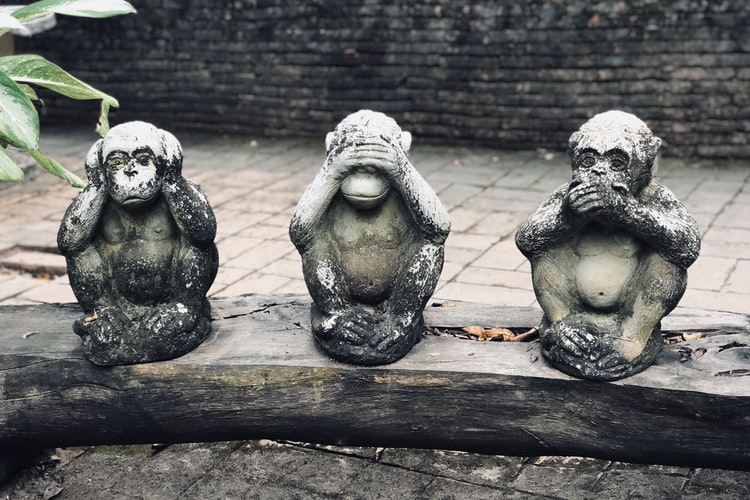Can We Trust the Science of Psychology?

What is Science?
Science is a dynamic force that propelled mankind to its highest achievements. It improves and revolutionizes not only our way of life, but the way we view life, truth, good, the universe, and even existence itself. Appearing not out of a sudden burst of divine enlightenment, its development constantly shifted from one widely accepted belief to another. Such movement is mostly caused by the skepticism of thinkers from different eras. Distinguishing itself from philosophy, it succeeded in proving theories through what is material and quantifiable. Scientists based their studies on what can be perceived by our five senses, what can be counted and mapped out, and what can be proven by repeated experiments. For example, water that has a boiling point of 100 ̊C was proven by seeing and feeling the increase in temperature and eventually boiling. It is verifiable by repeated tests that yield exactly the same results.
Development of Psychology as a Science
What is psychology? Encyclopedia Britannica defines psychology as “a scientific discipline that studies mental states and processes and behavior in humans and other animals.” In western culture, the development of psychology came from contributors from many areas, but it also began in philosophy. Aristotle believed that the brain is the seat of the rational mind, while Hippocrates delved on human temperaments and the traits associated with them. In the 17th century, René Descartes argued that the mind “decides” and the body carries out the decision. Psychology started to become a formal discipline in the 19th century through the works of Wilhelm Wundt and William James. James defined psychology as the science of mental life.
In 1913, John B Watson, one of the influential founders of behaviorism, urged reliance on only objectively measurable actions and conditions, effectively removing consciousness from psychology. He argued that psychology as science must deal exclusively with directly observable behavior in lower animals as well as humans. In the United States, most university psychology departments became devoted to turning psychology away from philosophy and into a rigorous empirical science.
While an empirical science uses methods that can give quantifiable results and findings, it is reasonable to evaluate the source and details of the studies and experiments done.
Question Psychology
It is known that any studies conducted would sound more credible and reliable when it is introduced with the expressions, “scientists found out” or “studies by scientists show,” but how exact and, more importantly, how applicable are results of scientific studies to all people given that we have different ages, cultures, languages, upbringing, interests, and motivations?
“If you want to be a whistleblower, you have to be prepared to lose your job. I’m able to do what I’m doing here because I’m nobody.” — Nick Brown
This is how the controversial Nick Brown, who will turn 60 this year, explained in an interview with The Guardian how he’s able to take on an American academic establishment on psychology. He started his university studies in engineering but is now the head of IT network operations in an international organization. He then took up graduate studies in psychology where his mastery of numbers made him able to question recent studies in the field. Likewise, he had a TED Talk, “The Limits of Scientific Psychology” where he talked about the science of psychology. He emphasized that like most sciences it started off as a branch of philosophy, and went on to prove his points.
He cites the result of research by professor Jeffrey Arnett that shows that people in psychological studies are 96% Western (12% of the world population), 68% are from the USA (5% of the world population), 77% are white, and 67% are psychology undergraduates.
The said research was published last 2008 in an article entitled, “The Neglected 95%” in the American Psychologist, the flagship peer-reviewed scholarly journal of the American Psychological Association (APA). The article explains that “psychological research published in APA journals focuses too narrowly on Americans, who comprise less than 5% of the world’s population. The result is an understanding of psychology that is incomplete and does not adequately represent humanity. First, an analysis of articles published in six premier APA journals is presented, showing that the contributors, samples, and editorial leadership of the journals are predominantly American. Then, a demographic profile of the human population is presented to show that the majority of the world’s population lives in conditions vastly different from the conditions of Americans, underlining doubts of how well American psychological research can be said to represent humanity. The reasons for the narrowness of American psychological research are examined, with a focus on a philosophy of science that emphasizes fundamental processes and ignores or strips away cultural context. Finally, several suggestions for broadening the scope of American psychology are offered.
Brown adds that psychology students in the USA have 4,000 times the possibility to be signed up in psychological studies and more than 90% of studies are done on Caucasians. It is safe to assume that majority of psychological experimentation is done in the west and mostly in people within the intellectual environment of a university. This proves that such studies and experimentation cannot totally claim universality. Does a woman who sells rags in an impoverished town in Southeast Asia have the same worldview, intentions, and thought processes as a man from Harvard University who aims to graduate with high honors?
In science, there is a process of repeating research called replication. It is done to findings to determine the extent to which one generalizes across time and across situations. Recently, the science of psychology has come under criticism because a number of research findings do not replicate.
Interestingly, a recent effort to replicate past psychological experiments and studies to get the same results was only able to get 40% success. Sixty percent of the studies yielded different results.
If psychology is “a scientific discipline that studies mental states and processes and behavior in humans and other animals,” does it include ALL humans in the world or just a few privileged ones? Can psychological findings be claimed to be applicable to everyone?








Responses